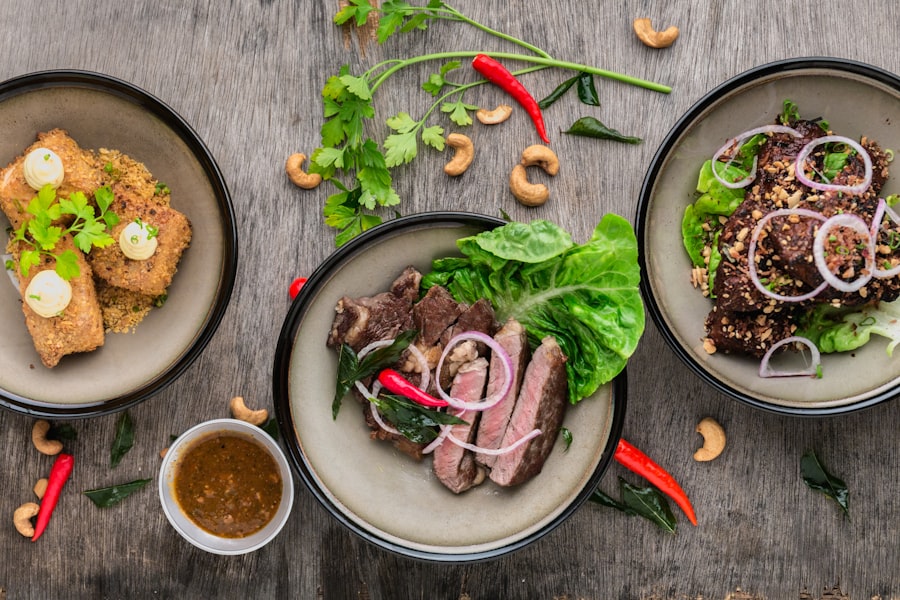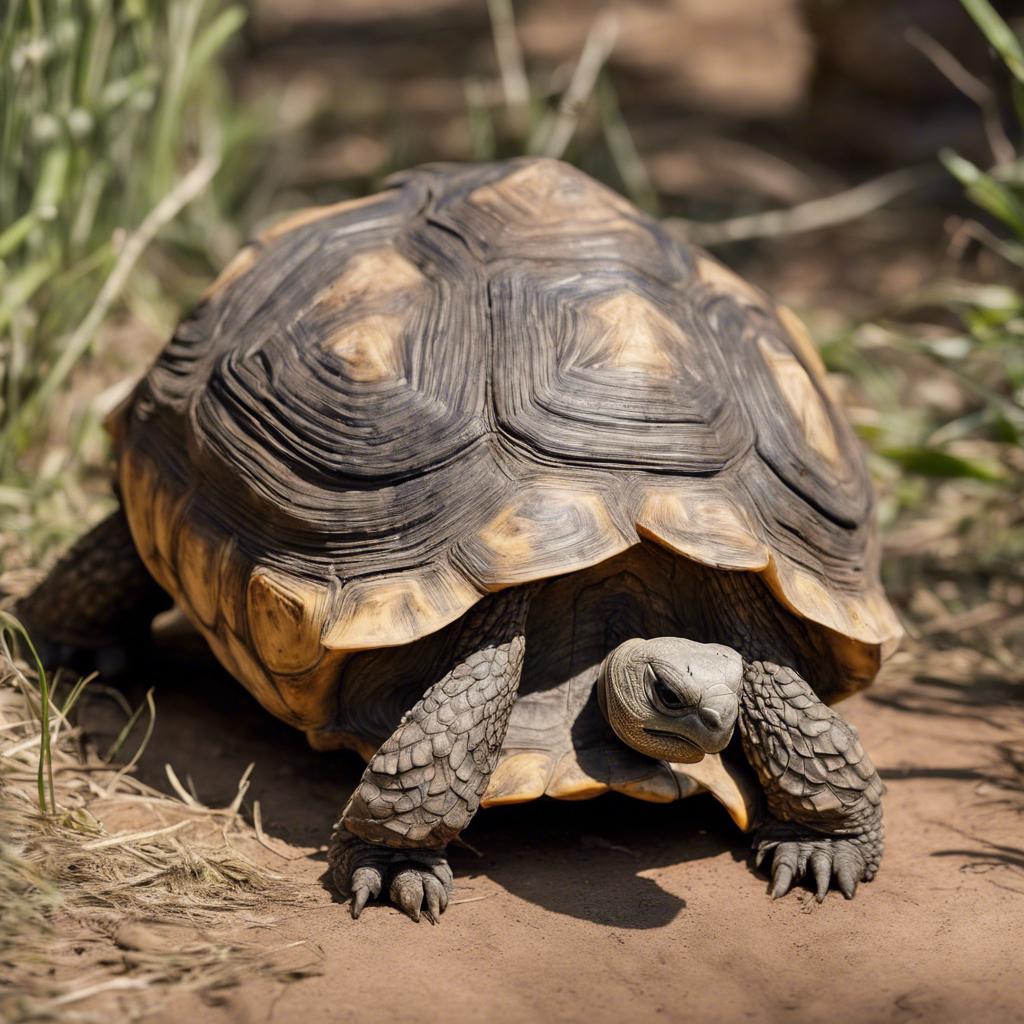Tortoises are fascinating creatures that have become popular pets for many people. They are known for their slow and steady nature, and their long lifespans make them a commitment for pet owners. Proper care and nutrition are essential for the health and well-being of tortoises.
Key Takeaways
- Tortoises are reptiles that are known for their slow movement and hard shells.
- Food is crucial for the survival of tortoises as it provides them with energy and nutrients.
- Factors such as temperature, humidity, and activity level can affect the survival of tortoises without food.
- Water is also important for tortoise survival as it helps with digestion and hydration.
- Tortoises can survive for several months without food, but proper nutrition is essential for their overall health and well-being.
The Importance of Food for Tortoises
Tortoises have specific nutritional needs that must be met in order for them to thrive. A balanced diet is crucial to ensure that they receive all the necessary nutrients. Tortoises are herbivores, meaning they primarily eat plants. They require a variety of leafy greens, vegetables, and fruits to meet their dietary needs.
It is important to provide a diverse range of foods to ensure that tortoises receive all the necessary vitamins and minerals. Leafy greens such as kale, dandelion greens, and collard greens are excellent choices. Vegetables like carrots, bell peppers, and squash can also be included in their diet. Fruits should be given in moderation due to their high sugar content.
Factors Affecting Tortoise Survival without Food
The ability of a tortoise to survive without food depends on several factors. The age and size of the tortoise play a role in determining how long they can go without food. Younger tortoises have higher metabolic rates and may not be able to survive as long without food compared to adult tortoises.
Environmental conditions also play a role in tortoise survival without food. Tortoises living in harsh environments with limited food resources may have adaptations that allow them to survive longer periods without food. Additionally, the overall health and condition of the tortoise can affect their ability to survive without food.
The Role of Water in Tortoise Survival
Water is essential for the survival of tortoises. It is important to provide a constant supply of fresh water for them to drink. Tortoises also obtain moisture from the foods they eat, so a diet that includes high-water content foods is beneficial.
The amount of water tortoises need can vary depending on factors such as temperature and activity level. It is important to monitor their water intake and ensure that they have access to water at all times. Signs of dehydration in tortoises include sunken eyes, dry skin, and lethargy.
Tortoise Hibernation and Food Deprivation
Tortoises have the ability to hibernate, which can affect their food intake. During hibernation, tortoises enter a state of reduced metabolic activity and do not eat. It is important to prepare tortoises for hibernation by gradually reducing their food intake and ensuring they are in good health.
Monitoring tortoises during hibernation is crucial to ensure their well-being. They should be checked regularly for signs of dehydration or illness. If any issues arise, it may be necessary to bring the tortoise out of hibernation and provide food and water.
How Long Can Adult Tortoises Survive Without Food?

The ability of adult tortoises to survive without food depends on various factors. The species of tortoise, as well as its overall health and condition, can affect how long it can go without food. On average, adult tortoises can survive for several weeks without food.
However, it is important to note that prolonged periods without food can have detrimental effects on the health of adult tortoises. It is always best to provide a balanced diet and consult with a veterinarian for proper care.
How Long Can Baby Tortoises Survive Without Food?
Baby tortoises have higher metabolic rates than adults and may not be able to survive as long without food. The species of tortoise, as well as its age and overall health, can affect how long a baby tortoise can go without food.
On average, baby tortoises can survive for a few days to a week without food. However, it is important to provide them with regular meals to ensure their growth and development.
Tortoise Species and Food Deprivation
Different species of tortoises have varying levels of tolerance to food deprivation. Some species are better adapted to survive in environments with limited food resources, while others may require more frequent meals.
For example, the desert tortoise is known for its ability to survive in arid environments with limited food availability. It has adaptations that allow it to conserve water and energy during periods of food scarcity. On the other hand, the Galapagos tortoise requires a more frequent food supply due to its larger size and higher metabolic rate.
Signs of Starvation in Tortoises
Starvation can have serious consequences for the health of tortoises. It is important to be aware of the signs of starvation and take action if necessary. Physical signs of starvation in tortoises include weight loss, sunken eyes, and lethargy.
Behavioral signs of starvation may include a lack of appetite, decreased activity level, and a weakened immune system. If any of these signs are observed, it is important to consult with a veterinarian for proper care and treatment.
The Importance of Proper Nutrition for Tortoises
Proper nutrition is crucial for the health and well-being of tortoises. A balanced diet that includes a variety of leafy greens, vegetables, and fruits is essential to meet their nutritional needs. It is important to provide fresh water at all times and monitor their hydration levels.
Consulting with a veterinarian is recommended for proper care and nutrition for tortoises. They can provide guidance on feeding schedules, dietary requirements, and any specific needs based on the species of tortoise. By providing proper nutrition, tortoises can live long and healthy lives.
If you're curious about how long tortoises can survive without food, you might also be interested in learning about the impact of stress on bearded dragons. Stress can have serious consequences for these reptiles, and it's important for owners to understand how to minimize its effects. To delve deeper into this topic, check out this informative article on reptilewizard.com. While you're there, don't forget to explore their other valuable resources on reptile care and husbandry, available at reptilewizard.com.
FAQs
What is a tortoise?
A tortoise is a reptile that belongs to the family Testudinidae. They are known for their hard, protective shells and slow movements.
How long can tortoises live without food?
Tortoises can survive without food for several months, depending on their species, age, and overall health. However, it is not recommended to deprive them of food for extended periods as it can lead to health problems.
What do tortoises eat?
Tortoises are herbivores and primarily eat plants, such as grasses, leaves, and flowers. Some species also eat fruits and vegetables.
How often should tortoises be fed?
The frequency of feeding tortoises depends on their age, species, and size. Generally, adult tortoises can be fed every other day, while younger ones may need to be fed daily.
What happens if a tortoise doesn't eat?
If a tortoise doesn't eat for an extended period, it can lead to health problems such as weight loss, dehydration, and metabolic bone disease. It is essential to ensure that tortoises have access to food and water at all times.
Can tortoises hibernate?
Yes, some species of tortoises hibernate during the winter months. During hibernation, they slow down their metabolism and survive on stored fat reserves. It is essential to provide them with a suitable hibernation environment and monitor their health during this period.

